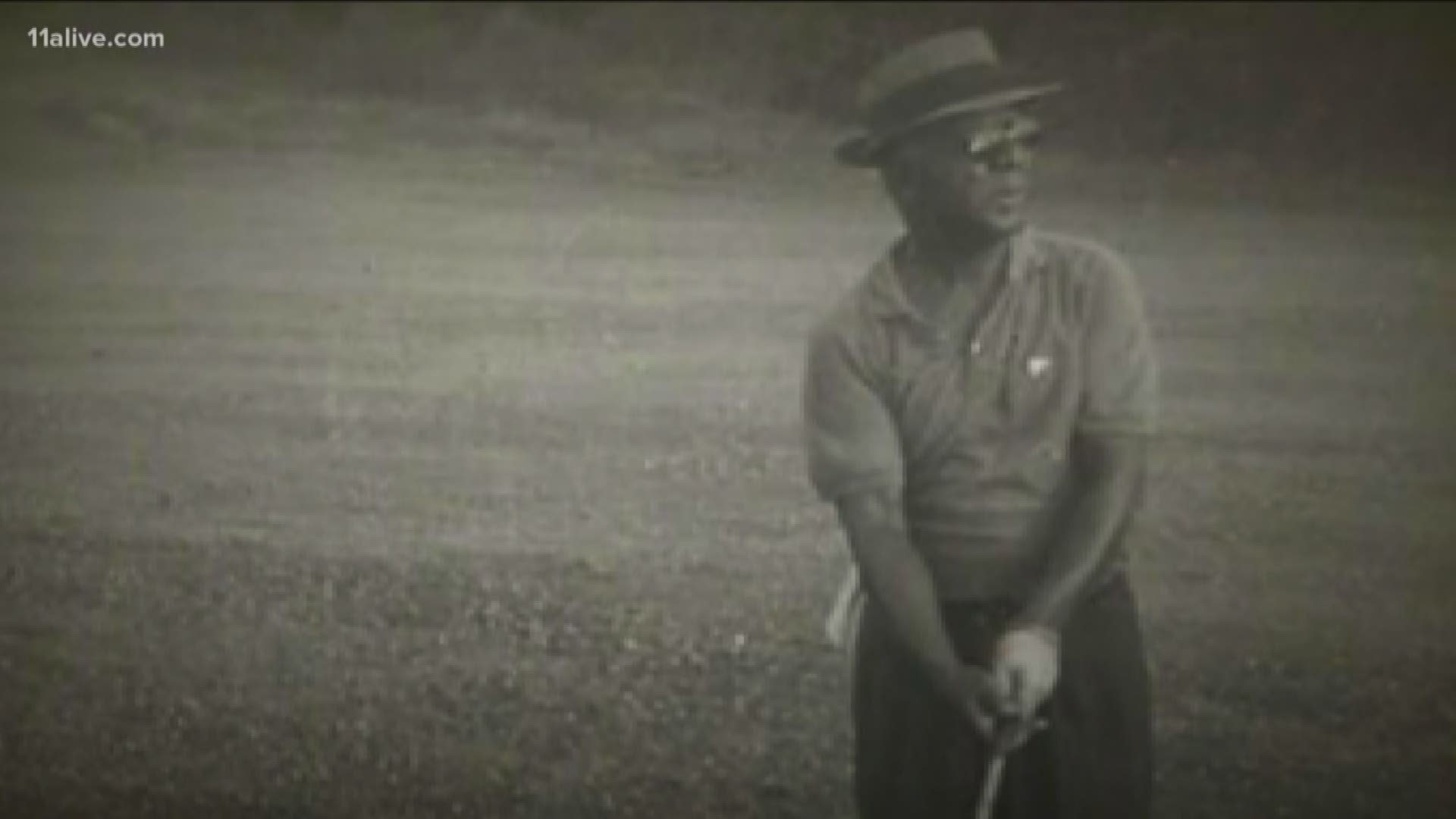ATLANTA — There was a time -- not so long ago -- when picking up a golf club in Atlanta was reserved for people with only a certain skin color.
It wasn't until 1955 that city parks and golf courses were desegregated. That change happened because of one dedicated Atlanta family who took the fight all the way to the Supreme Court.
It changed Atlanta's history and created a powerful legacy that spanned over three generations.
"My granddad was a golfer. He played practically every day of the week," Michael Holmes said.
It was a pressure release valve for Hamilton Mayo Holmes, medical doctor, father of five, and eventual champion in a U.S. Supreme Court case that changed Atlanta forever.
"He took no prisoners," Michael said. "Every time he was out there, he was out there to win."
His drive on the course was as powerful as his pursuits in daily life. Michael knew his grandfather would "compete against anybody if we have an even playing field."
In 1953, Hamilton M. Holmes and his son Alfred "Tup" Holmes sued Atlanta to desegregate golf courses and city parks. They were taxpayers, they argued. They deserved to be there.
The case went all the way up to the U.S. Supreme Court. On November 7, 1955, the high court released their decision.
"Open golf courses to negroes, Supreme Court tells Atlanta," the old newspaper headline read.
"I just say thank you!" Michael laughed.
You've probably seen the Holmes family name around the city. There's the MARTA station, the elementary school, and a well-known road that intersects with another Civil Rights leader, Donald Lee Hollowell.
RELATED: First African American female hurricane hunter flies into the eye of world's most dangerous storms
Their paths would cross long before the intersection of those two streets.
The decision to integrate city parks was in 1955.
"Six years later, my brother won another U.S. Supreme Court decision to integrate the University of Georgia," Michael said.
Hamilton E. Holmes, grandson of Hamilton M. and son of Alfred "Tup," sued UGA with Charlayne Hunter-Gault to become the first African American students to attend and graduate from the university.
Their lawyer on the case was Donald Lee Hollowell.
"We are a family of firsts. When your time comes you have to step up," Michael said.
In 1983, then Mayor Andrew Young renamed the old Adams Park course after the man who led the fight - it became the Alfred "Tup" Holmes Memorial Golf Course.
The basement of the clubhouse serves as a museum of sorts where walking along the wall feels like walking back in time.
Now, great-grandson and namesake Hamilton E. Holmes, Jr. helps look after the exhibit.
"Sometimes things in the past fall by the wayside if the story is not rekindled or shared," he said.
The family has created a legacy foundation so they can upgrade the exhibit and the course and hopefully continue their legacy by teaching young kids in the area the game of golf.
They hope it serves as a reminder that one man's love for golf completely changed the game.
MORE NEWS |

